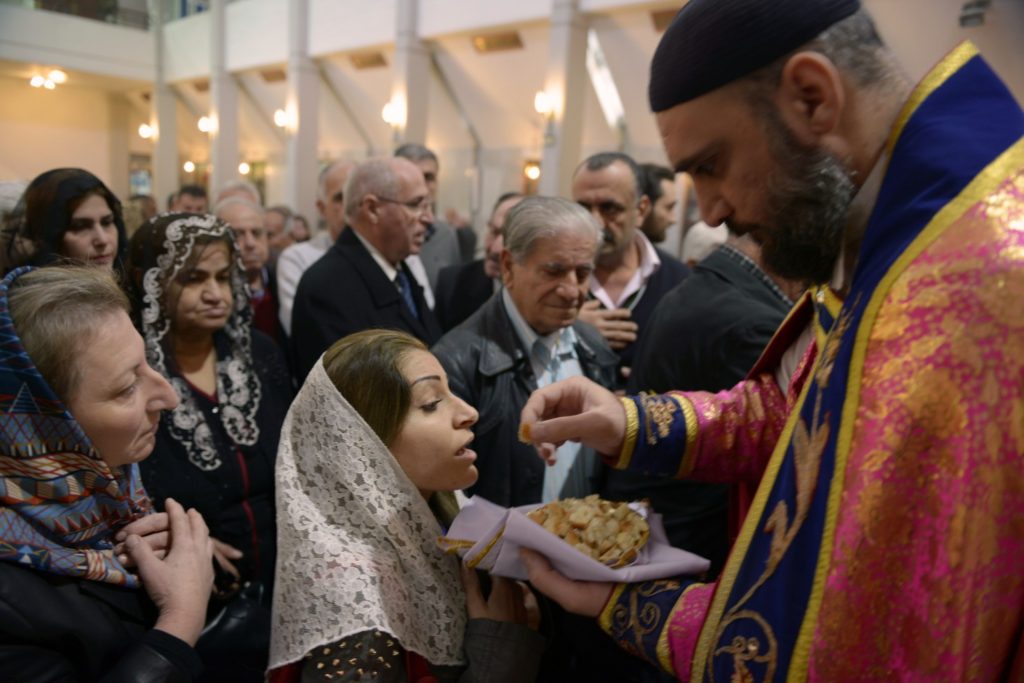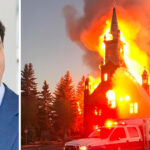By Jonathon Van Maren
Islamic militants greeted the arrival of Palm Sunday in Egypt with two suicide bombings, one in St. Mark’s Cathedral, the seat of the Coptic Church in Alexandria, and the other in Tanta, where the bomber transformed a joyful celebration into horrifying carnage when he detonated himself at the very front of the church. Dozens of Christians died, the attacks following closely on the heels of a suicide bombing in a Cairo church in September that killed 28, and a massive exodus of Christians from their homes in north Sinai in February after what the New York Times called “a concerted campaign of assassination and intimidation.”
The Middle East has always been a dangerous place for Christians. When I was in Egypt a few years ago exploring tombs in the Valley of the Kings, I noticed that many of the pagan gods carved into the limestone walls had been chipped away, and asked a local why that was. He told me that the tombs, gutted by graverobbers for centuries, had been turned into hidden churches by Coptic Christians, who purified their secret place of worship by removing representations of the Egyptian deities. In Bethlehem, after passing through the Israeli security fence decorated by graffiti that proclaimed that “Christ wept for Jerusalem, and we weep for Palestine,” I saw Muslim security guards rough up a Palestinian Christian attempting to lead a group into the Church of the Nativity.
The agony of Middle Eastern Christians has only increased over the last twenty years. Christians have lived in Iraq for two thousand years, but are now on the very verge of extinction due to persecution both from ISIS and other Islamic groups, but also from the government. Persecution is severe, and the organization Open Doors described the situation as “characterized by impunity, the threat of attacks and second class treatment by authorities.” When ISIS took the still-contested city of Mosul, they immediately set to work destroying Christian sites. In a few short months, the once thousands-strong Christian community there, which dated back to the earliest years of Christianity, had virtually disappeared. Before the American invasion of Iraq in 2003, 1.5 million Christians resided there. That number has plummeted to a few hundred thousand.
That is precisely why I was so conflicted by the news of Donald Trump’s decision to lob dozens of Tomahawk missiles into Syria last week in retaliation for a gas attack carried out by the forces of embattled President Bashar al-Assad. I understand why a military attack to damage the regime’s ability to carry out such heinous attacks was necessary, but it was extremely worrying to hear indications from the Trump Administration that a regime change in Syria was on the table. While Trump has made much noise about his support for Syrian Christians, our recent Middle Eastern adventures have unquestionably made things far, far worse for Christians. Assad is a murderous dictator, yes. But we have to wonder if the fractured gang of Islamist rebels would be any better. Open Doors recently noted the unfolding situation with great concern:
The Syrian opposition is becoming increasingly “Islamized” and the civil war is morphing into a form of jihad against the Syrian government. The geographical concentration of remaining Christians in strategic areas is an important factor in their vulnerability to attack, as is their alleged support for the government. Most churches are in ruins, yet some Christians make a deliberate choice to stay and reach out to their fellow countrymen with the gospel.
Islamic governments, it must be said, do not have tendency to treat Christians very well, and many of the Syrian rebels are hostile to Christians. In 2013, invading Islamists sent Christians in Maaloula fleeing in terror, ending one of the world’s oldest Christian communities in one of the handful of villages where Aramaic, the language of Christ, was still spoken. And it’s not only ISIS—the hardline jihadists and so-called rebels are often equally threatening to Syria’s ancient Christian communities. There is a very real possibility that regime change in Syria would make things worse for Syrian minorities, not better. There is also no guarantee that whatever leadership would replace Assad’s would be preferable in the long run.
Like so many others, I was convinced of the justice of the Iraq War by angry men like the late Christopher Hitchens, who directed their molten wrath at the vile atrocities committed by Saddam and his gang. Ending Saddam’s iron grip on Iraq was undoubtedly an action everyone viewed as an objectively good one. But after the fact, Iraq’s Christian communities were nearly wiped out, and the country remains torn between bloody barbarians specializing in torture and decapitation and government forces. It seems to me that we should perhaps consider what happened in Iraq before launching a new Middle Eastern war almost nobody wants and may not help anyone in the long run. While men like Hitchens envisioned democracies emerging in the desert led by the beleaguered secular revolutionaries they idolized, it doesn’t seem to work out that way.








